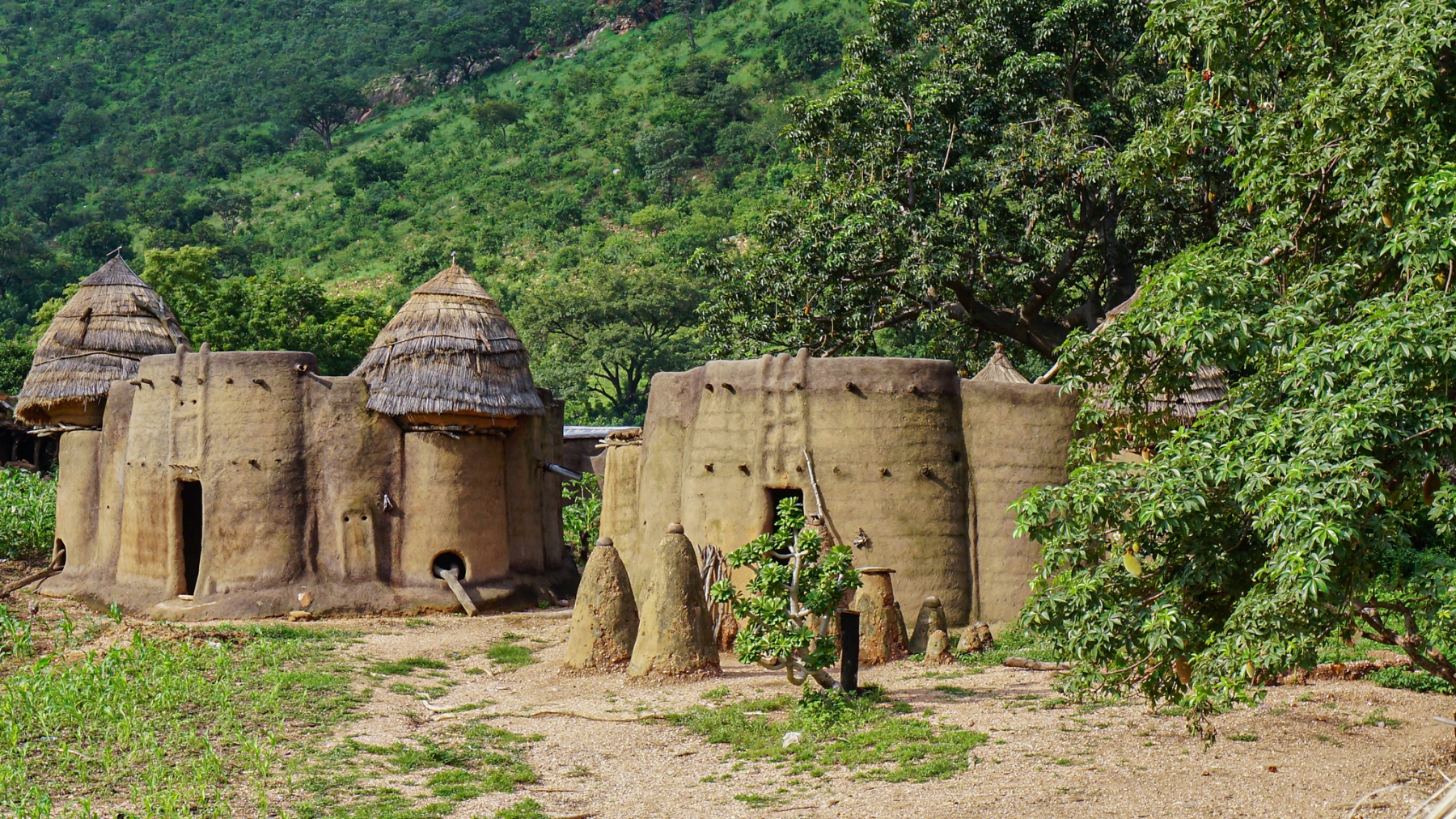
Togo, a captivating West African country, is brimming with a rich history, diverse culture, and breathtaking natural beauty. Nestled between Ghana to the west and Benin to the east, Togo offers a unique blend of attractions that will leave visitors in awe. From its vibrant markets and bustling cities to its pristine beaches and lush landscapes, Togo has something to offer every traveler.
In this article, we will explore 43 fascinating facts about Togo, delving into its history, geography, culture, economy, and more. Whether you are planning a trip to this enchanting destination or simply interested in learning about different countries, join us as we uncover the hidden gems and lesser-known facts about Togo.
Key Takeaways:
- Togo, a vibrant country in West Africa, boasts rich cultural diversity, stunning landscapes, and warm hospitality. From traditional music and dance to UNESCO World Heritage Sites, Togo offers an immersive experience for travelers.
- With its fascinating history, diverse wildlife, and flavorful cuisine, Togo is a hidden gem waiting to be explored. From beautiful beaches to vibrant markets, there’s something for everyone in this enchanting nation.
Togo is a country in West Africa, bordered by Ghana to the west, Benin to the east, Burkina Faso to the north, and the Atlantic Ocean to the south.
Togo’s strategic location makes it a vibrant hub for trade and commerce in the region.
The capital city of Togo is Lomé, which is situated along the Gulf of Guinea.
Lomé is known for its beautiful beaches, bustling markets, and vibrant nightlife.
Togo gained its independence from France on April 27, 1960.
Since then, the country has made significant progress in political stability and economic development.
The official language of Togo is French.
French serves as the primary language of administration, education, and business in the country.
Togo is known for its rich cultural heritage and diverse ethnic groups.
The country is home to over 40 different ethnic groups, each with its own unique traditions, languages, and customs.
The Ewe people are one of the largest ethnic groups in Togo.
The Ewe people are known for their vibrant festivals, traditional music and dance, and intricate hand-woven textiles.
Togo is renowned for its traditional handicrafts, including wood carvings, clay pottery, and basket weaving.
These handicrafts showcase the artistic talents and cultural traditions of the Togolese people.
Mount Agou is the highest peak in Togo, standing at an elevation of 986 meters (3,235 feet).
Hiking enthusiasts can enjoy breathtaking views of the surrounding landscapes from the summit of Mount Agou.
The cuisine of Togo is diverse and flavorful, with staple ingredients such as maize, cassava, yams, and palm nuts.
Popular dishes include fufu (a dough-like food made from cassava or yams) and akoumé (a fermented cornmeal dish).
Traditional music and dance are integral parts of Togolese culture.
From the rhythmic beats of the drums to the energetic movements of the dancers, Togolese music and dance are a vibrant expression of joy and celebration.
The Koutammakou landscape in Togo is a UNESCO World Heritage Site.
This stunning area is home to the Batammariba people and features unique fortress-like mud houses known as “takienta.”
Togo is known for its vibrant markets, where locals and tourists can find an array of goods, from fresh produce to handcrafted souvenirs.
The Grand Marché in Lomé is one of the largest markets in West Africa and offers a true sensory experience.
Football (soccer) is the most popular sport in Togo.
The Togo national football team, known as the Hawks, has participated in several Africa Cup of Nations tournaments.
Togo is home to several national parks and nature reserves.
The Fazao-Malfakassa National Park and the Kéran National Park are renowned for their diverse wildlife and stunning natural landscapes.
The official currency of Togo is the West African CFA franc (XOF).
It is advisable to exchange currency at official exchange bureaus or banks for a fair and accurate conversion rate.
Togo has a tropical climate with distinct dry and rainy seasons.
The months of November to March are typically dry, while the rainy season occurs from April to October.
Togolese festivals are vibrant celebrations that showcase the nation’s cultural diversity.
From the Voodoo Festival in January to the Evala Festival in July, there is always a reason to celebrate in Togo.
Togo is a popular destination for eco-tourism.
Visitors can explore lush forests, encounter rare wildlife, and embark on thrilling outdoor adventures.
The Tamberma Valley is another UNESCO World Heritage Site in Togo.
It is known for its unique architecture, with traditional houses blending harmoniously with the natural landscape.
Togo has a strong emphasis on education.
The country has made significant strides in improving access to primary and secondary education for its citizens.
The Flag of Togo consists of five horizontal stripes – green, yellow, white, green, and red.
Each color symbolizes different aspects of the nation’s heritage and aspirations.
Togo is home to the rare and endangered hippos.
The Togolese government has implemented conservation efforts to protect these magnificent creatures and their habitats.
Togo has a rich musical tradition with genres such as Afrobeat, Highlife, and Soukous.
The music of Togo has influenced artists across the African continent and beyond.
Togo has a growing film industry, known as “Nollywood.”
Togolese filmmakers are creating captivating movies that explore social issues and showcase the talent of local actors and actresses.
Togo is known for its vibrant nightlife.
Lomé and other cities offer a range of bars, clubs, and live music venues where locals and visitors can unwind and dance the night away.
The national dish of Togo is “fufu with sauce.”
It is a staple food made from pounded yam or cassava, served with a flavorful sauce made from tomatoes, spices, and protein.
Togo has a rich tradition of storytelling.
Elders pass down oral histories, myths, and legends to younger generations, preserving the cultural heritage of the country.
Togo is a member of the Economic Community of West African States (ECOWAS).
This regional organization promotes economic cooperation and integration among its member states.
The Togolese people are known for their warm hospitality and friendly nature.
Visitors to Togo often remark on the welcoming and inclusive atmosphere they encounter.
Togolese cuisine often features spicy flavors and a variety of meats, such as beef, goat, and poultry.
From grilled kebabs to hearty stews, Togolese cuisine offers a delightful culinary experience.
Togo has a well-developed transportation infrastructure.
Visitors can easily navigate the country via a network of highways, railways, and airports.
Togo celebrates its Independence Day on April 27th.
It is a national holiday filled with parades, cultural performances, and festivities.
Togo is renowned for its beautiful beaches along the Gulf of Guinea.
Visitors can relax, swim, and soak up the sun on the sandy shores of Togo’s coastline.
Togo is home to a wide variety of wildlife, including elephants, lions, antelopes, and monkeys.
Nature enthusiasts can embark on safaris and witness these majestic creatures in their natural habitats.
The traditional religion of Togo is indigenous African beliefs, with a strong influence of Voodoo.
Voodoo practices and rituals are an integral part of Togolese culture and spirituality.
The Kpalimé Waterfalls in Togo are a natural wonder that attracts visitors from far and wide.
The cascading waterfalls surrounded by lush greenery create a picturesque setting.
Togo has a diverse range of ecosystems, including forests, savannahs, and coastal wetlands.
These ecosystems support a wide array of plant and animal species.
The official motto of Togo is “Travail, Liberté, Patrie” (Work, Liberty, Homeland).
This motto reflects the core values and aspirations of the Togolese people.
Togo has a vibrant arts scene, with talented artists creating paintings, sculptures, and various forms of visual arts.
Art galleries and exhibitions showcase the creativity and talent of Togo’s artistic community.
Togo has a history of traditional kingship, with different tribes and regions having their own monarchs.
These traditional rulers play a significant role in local governance and the preservation of cultural heritage.
The Togo Museum in Lomé offers a fascinating insight into the country’s history, culture, and art.
Visitors can explore exhibits showcasing archaeological artifacts, traditional crafts, and historical photographs.
Togo is home to the Sacred Forests of Kpalimé, where nature and spirituality intertwine.
These sacred groves are revered by the local communities and serve as sanctuaries for various plant and animal species.
Togo is a melting pot of diverse influences, blending traditional African culture with European, Caribbean, and indigenous traditions.
This fusion of cultures creates a unique and vibrant tapestry that is distinctly Togolese.
With its rich heritage, stunning landscapes, and warm hospitality, Togo offers a truly immersive experience for travelers seeking to explore the beauty of West Africa. Whether you are captivated by its vibrant culture, intrigued by its historical sites, or eager to embark on thrilling adventures, Togo has something for everyone. So, pack your bags and get ready to discover the wonders of this remarkable country.
Conclusion
Togo, with its rich history, vibrant culture, and stunning natural beauty, is a fascinating country that has much to offer. From its diverse landscapes to its warm and friendly people, Togo has something to enchant every visitor. Whether you’re exploring the bustling markets of Lomé, hiking through the lush forests of Togo’s national parks, or immersing yourself in the unique voodoo traditions, Togo promises a truly unforgettable experience. With its emerging tourism industry and commitment to sustainable development, Togo is poised to become a top destination in West Africa. So, pack your bags and get ready to uncover the hidden gems of this captivating country.
FAQs
1. What is the capital of Togo?
The capital of Togo is Lomé. It is the largest city in the country and serves as the economic and administrative center.
2. What is the official language of Togo?
The official language of Togo is French. However, many different languages are spoken throughout the country, reflecting its diverse ethnic groups.
3. What are some popular tourist attractions in Togo?
Togo offers a range of attractions, including the beautiful beaches of Aneho, the traditional villages of Koutammakou, the hiking trails of Mount Agou, and the bustling Grand Marché in Lomé.
4. Is Togo safe for travelers?
While Togo is generally considered safe for travelers, it is always important to take precautions and stay informed about the current situation. It is advisable to consult travel advisories and take necessary precautions such as avoiding isolated areas at night and keeping valuables secure.
5. What is the climate like in Togo?
Togo has a tropical climate, with a wet season from April to October and a dry season from November to March. Temperatures are generally warm year-round, with the coastal areas experiencing more humidity than the inland regions.
6. What is the currency of Togo?
The currency of Togo is the West African CFA franc (XOF). It is advisable to have some local currency on hand for small purchases, as credit cards may not be accepted everywhere.
7. Do I need a visa to visit Togo?
Most visitors to Togo require a visa. It is recommended to check the visa requirements and apply in advance to ensure a smooth entry into the country.
8. What are some traditional dishes in Togo?
Some popular traditional dishes in Togo include fufu (a staple made from cassava), akume (cornmeal paste), grilled fish, and various stews and sauces made with locally grown ingredients.
9. Can I drink tap water in Togo?
It is not recommended to drink tap water in Togo. It is advisable to stick to bottled water or purify water using a reliable method.
10. What is the best time to visit Togo?
The best time to visit Togo is during the dry season from November to March when the weather is more pleasant for outdoor activities. However, each season has its own unique charms, so it ultimately depends on your preferences.
Togo's captivating culture, history, and natural wonders make it a truly fascinating destination. From savory dishes packed with nutrition to intriguing facts about actor Jonathan Togo, there's still more to explore. Delve into the spiritual world of Ifa, a traditional religion practiced in Togo and beyond. Whether you're a foodie, pop culture enthusiast, or curious about ancient beliefs, these additional articles will satisfy your thirst for knowledge and enrich your understanding of this remarkable country.
Was this page helpful?
Our commitment to delivering trustworthy and engaging content is at the heart of what we do. Each fact on our site is contributed by real users like you, bringing a wealth of diverse insights and information. To ensure the highest standards of accuracy and reliability, our dedicated editors meticulously review each submission. This process guarantees that the facts we share are not only fascinating but also credible. Trust in our commitment to quality and authenticity as you explore and learn with us.


